Lord Randal
Child Ballad #12
Oh, where have you been, Lord Randal, my son?
Oh, where have you been, my darling young one?
I have been with my sweetheart, mother, make my bed soon,
For I’m sick to my heart and I fain would lie down.
And what did she give you, Lord Randal, my son?
And what did she give you, my darling young one?
Eels boiled in brew, mother, make my bed soon,
For I’m sick to my heart and I fain would lie down.
What’s become of your bloodhounds, Lord Randal, my son?
What’s become of your bloodhounds, my darling young one?
Oh they swelled and they died, mother, make my bed soon,
For I’m sick to my heart and I fain would lie down.
Oh, I fear you are poisoned, Lord Randal, my son
Oh, I fear you are poisoned, my darling young one.
Oh, yes I am poisoned, mother, make my bed soon,
For I’m sick to my heart and I fain would lie down.
Oh, what will you leave your brother, Lord Randal my son?
Oh, what will you leave your brother, my darling young one?
My horse and the saddle, mother, make my bed soon,
For I’m sick to my heart and I fain would lie down.
What will you leave your sister, Lord Randal, my son?
What will you leave your sister, my darling young one?
My gold box and rings, mother, make my bed soon,
For I’m sick to my heart and I fain would lie down.
What will you leave your true love, Lord Randal, my son?
What will you leave your true love, my darling young one?
The tow and the halter to hang on yon tree
And let her hang there for the poisoning of me.

 I am indebted to the many friends who share my love of traditional songs and to the many scholars whose works are too many to include here. I am also incredibly grateful to the collector’s curators and collators of Wikipedia, Mudcat.org, MainlyNorfolk.info, and TheContemplator.com for their wise, thorough and informative contributions to the study of folk music.
I am indebted to the many friends who share my love of traditional songs and to the many scholars whose works are too many to include here. I am also incredibly grateful to the collector’s curators and collators of Wikipedia, Mudcat.org, MainlyNorfolk.info, and TheContemplator.com for their wise, thorough and informative contributions to the study of folk music.
I share their research on my site with humility, thanks, and gratitude. Please cite their work accordingly with your own research. If you have any research or sites you would like to share on this site, please post in the comment box. Thanks!
Contents
| "Lord Randall" | |
|---|---|
 Illustration by Arthur Rackham in Some British Ballads, ca. 1919 | |
| Song | |
| Written | 17th century (earliest known) |
| Genre | Border ballad, folk song |
| Songwriter(s) | Unknown |
"Lord Randall", or "Lord Randal", (Roud 10, Child 12) is an Anglo-Scottish border ballad[1] consisting of dialogue between a young Lord and his mother.[2] Similar ballads can be found across Europe in many languages, including Danish, German, Magyar, Irish, Swedish, and Wendish.[3] [4] Italian variants are usually titled "L'avvelenato" ("The Poisoned Man") or "Il testamento dell'avvelenato" ("The Poisoned Man's Will"), the earliest known version being a 1629 setting by Camillo il Bianchino, in Verona.[5] Under the title "Croodlin Doo" Robert Chambers published a version in his "Scottish Ballads" (1829) page 324.[6][7]
Summary
Lord Randall returns home to his mother after visiting his lover. Randall explains that his lover gave him a dinner of eels boiled in broo and that his hunting dogs died after eating the scraps of the meal, leading his mother to realize that he has been poisoned.[8][9] In some variants, Randall dictates his last will and testament in readiness for his impending death, dividing his possessions among family members and wishing damnation on his lover. Her motive for poisoning him is never discussed.[9]
Traditional recordings
Many traditional versions of the ballad survived long enough to be recorded by folklorists and ethnomusicologists.
Most traditional English versions are called "Henry, My Son". Dorset traveller Caroline Hughes sang a version to Peter Kennedy in 1968[10] and another to Ewan MacColl and Peggy Seeger in the early 1960s which can be heard online on the Vaughan Williams Memorial Library website.[11] Fred Jordan of Ludlow, Shropshire also sang "Henry, My Son" to Mike Yates in 1964[12] and Gwilym Davies in 1994.[13] Louisa Hooper of Somerset, England (sister of the traditional singer Lucy White) was recorded singing a version entitled "Lord Rendal" by the BBC and Douglas Cleverdon in 1942.[14]
James Madison Carpenter recorded many Scottish versions between 1929 and 1935, which can also be heard on the Vaughan Williams Memorial Library website.[15][16][17][18] Russian tenor Vladimir Rosing recorded "Lord Rendal", the Somerset version arranged by Cecil Sharp, on Vocalion A-0167 in the early 1920s. Scottish singer Betsy Miller sang her traditional version with her famous son Ewan MacColl to Alan Lomax in 1953[19] and on the 1960 album A Garland Of Scots Folksong.[20][21] Scottish traveller Jeannie Robertson had her version entitled "Lord Donald" recorded by Peter Kennedy in 1953[22] and again by the BBC in 1963,[23] and her nephew Stanley Robertson was later recorded singing the same version,[24][25] the audio of which is available on the Tobar an Dualchais website.[26]
The Irish traditional singer Elizabeth Cronin was recorded several times singing a version called Lord Rendal.[27][28][29] The Irish sean nós singer Joe Heaney sang an Irish language version titled Amhrán na hEascainne (Song of the Eel).[30]
Several Appalachian musicians recorded the ballad; Jean Ritchie sang the Ritchie family version on the album Jean Ritchie: Ballads from her Appalachian Family Tradition,[31] whilst Frank Proffitt was recorded singing another traditional version in 1961.[32] The ballad was also collected extensively throughout the rest of America.[33]
Cultural uses
Dorothy L. Sayers' novel Strong Poison uses part of the ballad for a title, and has it as epigraph. In 1962, Bob Dylan modeled his song "A Hard Rain's A-Gonna Fall" on "Lord Randall", introducing each verse with variants of the introductory lines to each verse of "Lord Randall". Dylan's ballad is often interpreted as a reaction to the Cuban Missile Crisis. Dylan himself disclaimed this as an oversimplification, and in reality, Dylan first publicly performed the song a month before the crisis.[34][35]
See also
References
- ^ Border Ballads By William Beattie, Compiled by William Beattie, Published by Penguin Books, 1952, p. 17
- ^ Francis James Child, English and Scottish Popular Ballads, "Lord Randal"
- ^ Leonhardt, Luise (1968). "Spin Magazine article on Finding Folk Songs". Spin Magazine. 6 (4): 17.
- ^ Francis James Child, The English and Scottish Popular Ballads, v. 1, pp. 153–55, Dover Publications, New York 1965
- ^ Alessandro D'Ancona, La poesia popolare italiana Livorno, 1878, cf. L'avvelenato
- ^ Vaugan Williams, Ralph. "Mr". Vaughan Williams Memorial Library. Cecil Sharp House. Retrieved 13 November 2022.
- ^ Matteson jnr, Richard. "Mr". Bluegrassmessengers. www.bluegrassmessengers. Retrieved 13 November 2022.
- ^ Francis James Child, The English and Scottish Popular Ballads, v. 1, p. 153, Dover Publications, New York 1965
- ^ a b Hallissy, Margaret (1987). Venomous woman: fear of the female in literature. New York: Greenwood Press. p. 24. ISBN 0313259194. OCLC 15790392.
- ^ "Henry My Son (Roud Folksong Index S208024)". The Vaughan Williams Memorial Library. Retrieved 20 November 2020.
- ^ "Henry My Son (Roud Folksong Index S370306)". The Vaughan Williams Memorial Library. Retrieved 20 November 2020.
- ^ "Henry My Son (Roud Folksong Index S302186)". The Vaughan Williams Memorial Library. Retrieved 20 November 2020.
- ^ "Henry My Son (Roud Folksong Index S237686)". The Vaughan Williams Memorial Library. Retrieved 20 November 2020.
- ^ "Lord Rendal (Roud Folksong Index S182618)". The Vaughan Williams Memorial Library. Retrieved 20 November 2020.
- ^ "Lord Randal (VWML Song Index SN17894)". The Vaughan Williams Memorial Library. Retrieved 20 November 2020.
- ^ "Lord Randle (VWML Song Index SN17099)". The Vaughan Williams Memorial Library. Retrieved 20 November 2020.
- ^ "Lord Roland (VWML Song Index SN19385)". The Vaughan Williams Memorial Library. Retrieved 20 November 2020.
- ^ "Lord Randle (VWML Song Index SN17133)". The Vaughan Williams Memorial Library. Retrieved 20 November 2020.
- ^ "Lord Randall (Roud Folksong Index S341570)". The Vaughan Williams Memorial Library. Retrieved 20 November 2020.
- ^ "Lord Randal (Roud Folksong Index S346064)". The Vaughan Williams Memorial Library. Retrieved 20 November 2020.
- ^ "Betsy Miller and Ewan MacColl - A Garland Of Scots Folksong". ewan-maccoll.info. Retrieved 20 November 2020.
- ^ "Lord Donald (Roud Folksong Index S213594)". The Vaughan Williams Memorial Library. Retrieved 20 November 2020.
- ^ "Lord Donald (Roud Folksong Index S182538)". The Vaughan Williams Memorial Library. Retrieved 20 November 2020.
- ^ "Lord Donald (Roud Folksong Index S433874)". The Vaughan Williams Memorial Library. Retrieved 20 November 2020.
- ^ "Lord Donald (Roud Folksong Index S433873)". The Vaughan Williams Memorial Library. Retrieved 20 November 2020.
- ^ "Tobar an Dualchais Kist O Riches". www.tobarandualchais.co.uk. Retrieved 20 November 2020.
- ^ "Lord Rendal (Roud Folksong Index S182619)". The Vaughan Williams Memorial Library. Retrieved 20 November 2020.
- ^ "Lord Randal (Roud Folksong Index S448301)". The Vaughan Williams Memorial Library. Retrieved 20 November 2020.
- ^ "Lord Randal (Roud Folksong Index S243505)". The Vaughan Williams Memorial Library. Retrieved 20 November 2020.
- ^ "Bluegrass Messengers - the Song of the Eel- Heaney (Ireland) pre-1964".
- ^ "Jean Ritchie: Ballads from her Appalachian Family Tradition". Smithsonian Folkways Recordings. Retrieved 20 November 2020.
- ^ "Lord Randall (Roud Folksong Index S213866)". The Vaughan Williams Memorial Library. Retrieved 20 November 2020.
- ^ "Search: RN10 sound USA". www.vwml.org. Retrieved 20 November 2020.
- ^ Mike Marqusee,Wicked messenger: Bob Dylan and the 1960s. Seven Stories Press, 2005, pp. 64ff
- ^ Robert Shelton,No direction home: the life and music of Bob Dylan. Da Capo Press, 2003, p. 152
External links
 Media related to Lord Randall at Wikimedia Commons
Media related to Lord Randall at Wikimedia Commons- Digitised copy of Lord Randal in James Johnson's Scots Musical Museum, printed between 1787 and 1803, from National Library of Scotland. JPEG, PDF, XML versions.
- Traditional English Lute Songs - Lord Randall
- A painting of the poisoning of Jimmy Randall appears on Kentucky artist and ballad singer Daniel Dutton's web site: "Ballads of the Barefoot Mind"
- Italian version "L'avvelenato"
- Appalachian mountains version by John Jacob Niles (1892-1980)
Source: Mainly Norfolk
Lord Randall / What Had You for Supper / Buried in Kilkenny / The Wild, Wild Berry
[ Roud 10 ; Child 12 ; G/D 2:209 ; Ballad Index C012 ; Wiltshire 1149 ; trad.]
Lord Randall is an Anglo-Scottish border ballad built in the form of a dialogue. The different versions follow the same general lines, the primary character (in this case Randall, but varying by location) is poisoned, usually by his sweetheart. This is revealed through a conversation where he reports on the events and the poisoner. Variants of this ballad are found all over Europe.
Ewan MacColl’s singing of Lord Randall is the very first track of the massive eight-record Riverside series of Child ballads, The English and Scottish Popular Ballads, first published in 1956.
A medley of Jeannie Robertson, Aberdeen, Elizabeth Cronin, Macroom, Co. Cork, Thomas Moran, Mohill, Co. Leitrim, Colm McDonagh, Carna, Galway, and Eirlys and Eddis Thomas, Glamorgan, South Wales singing Lord Randal was included on the anthology The Child Ballads 2 (The Folk Songs of Britain Volume 4; Caedmon 1961; Topic 1968).
The Elliotts of Birtley sang Henry My Son in 1961 on their eponymous Folkways album, The Elliotts of Birtley.
Frank Proffitt sang Lord Randall on the 1962 Folk-Legacy album Traditional Songs and Ballads of Appalachia that was reissued in 1966 as the Topic album North Carolina Songs and Ballads.
Joe Heaney sang An Tighearna Randal (Lord Randal) on his 1963 Topic album Irish Traditional Songs in Gaelic & English.
Frank Harte sang Henry My Son in 1967 on his Topic album Dublin Street Songs.
Cyril Tawney sang this song as Jacky My Son in 1969 on his Polydor album of traditional ballads from Devon and Cornwall, The Outlandish Knight.
George Dunn sang Henry My Son in a recording made by Roy Palmer on September 21, 1971 that was included in 2002 on his Musical Traditions anthologyChainmaker. Another recording made by Bill Leader on December 4-5, 1971 was published in 1975 on the Leader album George Dunn.
Martin Carthy sang Lord Randall on his 1972 album, Shearwater; this recording was also included on his anthology Carthy Chronicles. He recorded a different version in 1979 for his album Because It’s There which was reissued in 1993 on The Collection. Martin Carthy commented in the first album’s sleeve notes:
Lord Randall and John Blunt must be among the more widespread story-ideas in the folk consciousness, the stories remaining more or less the same and varying according to locale and-or the individual imagination of whoever sings them. […] I have to thank Phil and Sid of Edinburgh for the original idea which led me recasting the tune sung to Lord Randall, known as My Wee Croodlin’ Doo.
Steve Winick commented in the sleeve notes of The Collection:
Lord Randall is one of the most widely-known ballads in the English-speaking world, and indeed the plot is common to much of western Europe. This version, which Martin learned “virtually by accident”, comes originally from Sonny Ryan and is a rather compressed one in which the unfortunate boy knows his fate from the beginning, rendering unnecessary the song’s usual progress through various clues to a dark revelation. It is a superb example of Martin’s passionate unaccompanied singing of the old ballads.
George Spicer sang Henry My Son in a recording made at home in 1972-74 by Mike Yates on his Topic album Blackberry Fold: Traditional Songs and Ballads. This track was also included in 2001 on the Musical Traditions anthology of songs from the Mike Yates Collection, Up in the North and Down in the South.
John MacDonald sang Lord Ronald in a recording made by Tony Engle and Tony Russell in the singer’s caravan, Pitgaveny, Elgin, Morayshire, in November 1974. This recording was published in 1975 on his album The Singing Molecatcher of Morayshire and in 1998 on the Topic anthology O’er His Grave the Grass Grew Green (The Voice of the People Series Volume 3). A recording of Mary Delaney singing Buried in Kilkenny at home in Hackney London on October 14, 1977 was published in Volume 17 of the same series, It Fell on a Day, a Bonny Summer Day.
Tony Rose sang this ballad as Lord Rendal on his 1976 LP On Banks of Green Willow. He commented in the album notes:
Lord Rendal is the classic food-poisoning balled, dedicated here to the crisp eaters of Britain’s folk clubs. This version is from Mrs. Louie Hooper of Hambridge, Somerset, via Cecil Sharp, neither of whom had that particular problem to contend with.
Dick Gaughan sang Lord Randal on his 1977 Trailer album Kist o’ Gold.
Peter Bellamy recorded Lord Randall in 1985 for his album Second Wind. According to his sleeve notes he learned it from a Ewan MacColl recording:
The search for authentic blues recordings—not too easy in Norfolk around 1959—brought me my first contact with British Isles traditional music. An American anthology LP was borrowed from a school mate because it contained a track by Reverend Gary Davis, but there with it was Something Completely Different: someone called Ewan MacColl was singing Lord Randall, learned from his mother, Betsy Miller. A new world opened up; the high drama of the performance of this dark mediaeval tale grabbed me, literally by the throat, and never let me go. A pilgrimage to the Singers’ Club in 1962 or ’63 brought me face to face with the man himself, and I can’t deny that the impression he made has been a major influence on my approach to performance unto the present.
Lizzie Higgins sang Lord Donald at the Blairgowrie Folk Festival in between 1986 and 1995. This recording was included in 2000 on the festival anthology The Blair Tapes.
Ray Driscoll of Dulwich, London, sang a variant of this story, called The Wild, Wild Berry, to Mike Yates on April 5, 1989. This recording was included in 1998 on the EFDSS anthology A Century of Song. Another recording made by Gwilym Davies is the title track of Driscoll’s 2008 CD Wild, Wild Berry. Gwilym Davies commented in the album notes:
The gem of Ray’s repertoire and unique to him. Ray learnt this song, as The Death of Queen Jane, from the itinerant farm labourer Harry Civil in Shropshire. The story is clearly the same as Lord Randal but reworked. It is not clear whether the song is a old revival or is the product of 19thCentury re-working. Whatever the truth, the song has struck a chord with many revival folk singers on both sides of the Atlantic who are now performing it.
Bram Taylor sang Lord Randal in 1992 on the Fellside anthology of English traditional songs, Voices. Paul Adams commented in the liner notes:
One of the most widespread and indestructible of the “big” ballads. The story has cropped up all over Europe and the Scandinavian countries. It is No. 12 in Child’s The English and Scottish Popular Ballads and it can be seen to share some similarities with other ballads, notably Edward(Child 13) and The Two Brothers (Child 49). It has also spawned some less epic versions in the form of Henry My Son and a comic version of Henry My Son (sometimes called Green & Yellow). Bram’s is a particular fine example, possessing a superb melody and was collected by Cecil Sharp from Mrs. Louie Hooper of Hambridge, Somerset.
The Clutha sang Lord Ronald in 1996 on their CD On the Braes.
Bob Johnson collated and adapted the words of Lord Randall and sang it on Steeleye Span’s album of 1998, Horkstow Grange. He commented in the sleeve notes:
The entire song consists of a tense dialogue between Lord Randall and his mother, during which dawns the awful realisation that he has been poisoned by his lover and is going to die. But why did she poison him? Why is his mother’s questioning so quick and skillful at reaching the diagnosis? Did she collude with his girlfriend? Why is Lord Randall so ready to give up and die? Is it the knowledge of the betrayal that has removed his will to live? We don’t know; Lord Randall doesn’t know and he doesn’t care. He is sick to the heart and he just wants to lie down.
The Witches of Elswick sang Lord Randal—with verses starting quite similar to Tony Rose’s—in 2003 on their first album, Out of Bed, and they drily commented:
Bry convinced our friend Colin that this was a true story about someone she knew called “Lord Randal”, even down to the exploding bloodhound (that doesn’t appear in our version). It is, in fact, one of the Child ballads learnt from the singing of Bram Taylor.
Paddy Reilly sang Buried in Kilkenny on the 2003 Musical Traditions anthology From Puck to Appleby: Songs of Irish Travellers in England.
Fred Jordan sang Henry My Son on the 2004 Musical Traditions anthology of songs from the Mike Yates Collection, The Birds Upon the Tree.
John Kirkpatrick sang The Wild, Wild Berry in 2007 on his Fledg’ling CD Make No Bones. He also recorded it as Lord Randal in 2012 for his CD of Shropshire folk music, Every Mortal Place. He commented in the latter album’s liner notes:
Another song based in the singing of Ray Driscoll—this time one that he really did pick up while he was living in Shropshire. Versions of this tale have been sung all over Europe for hundreds of years, and in the long winter evenings of times gone by the number of verses could run into the hundreds too! The order of the verses in Ray’s version implies a slightly unusual and more engaging way for the story to unfold, and I’ve emphasised this by picking appropriate lines from the million other variants available.
Cara recorded the ballad under the title Poisoned Peas in 2007 for their second album, In Between Times, and later performed it live at the Arsenaal Theater in Vlissingen, Netherlands, on their 2008 DVD In Full Swing—Live. In the CD notes they cite Martin Carthy’s arrangement from Shearwater in 7/8 as their inspiration and they use nearly the same lyrics as he does. This video shows Cara at a Cooldog Concert in August 2007:
Brian Peters sang Lord Randal in 2008 on his CD of Child ballads, Songs of Trial and Triumph.
Jon Boden sang Lord Randal as the August 27, 2010 entry of his project A Folk Song a Day.
Emily Smith sang Lord Donald in 2011 on her CD Traiveller’s Joy.
Stephanie Hladowski learned The Wild Wild Berry from Mike Yates recording of Ray Driscoll [see above] and chose it for the title track of her and Chris Joynes’ 2012 album The Wild Wild Berry.
Former Witch of Elswick (see above), Bryony Griffith sang The Wild, Wild Berry in 2014 on her CD Nightshade. She noted:
This unique version of Lord Randal was poached from the lovely Lancashire singer Heather Dunn, who got it from John Kirkpatrick’s album Make No Bones. John got it from the singing of the late Shropshire singer Ray Driscoll, whose repertoire of rare songs was recorded by Gwylim Davies. In this version, Lord Randal dies after being fed the poisonous berries of the Woody Nightshade.
Lucy Ward learned Lord Randall from Peter Bellamy’s album and sang it in 2015 on her CD I Dreamt I Was a Bird.
Compare to all these versions Maddy Prior’s song What Had You for Supper? with “modernised” lyrics in 1993 on her album Year. She commented in her liner notes:
I’ve altered the lyrics of this attractive Irish version of Lord Randall to give it an extra kick of relevance. Poison in small quantities can be healing, in gross mass is dangerous stuff.
I heard this version of Lord Randall from the singing of Paddy Reilly and he called it Buried in Kilkenny.
Maddy Prior and June Tabor sang the just mentioned Buried in Kilkenny at Burnley Mechanics in October 1988. A live recording of it was included in 2005 on the first CD of June Tabor’s anthology Always.
Lyrics
Martin Carthy sings Lord Randall on Shearwater
“Where have ye been all the day, my own dear darling boy?
Where have ye been all the day, my own dear comfort and joy?”
“I have been to my stepmother, make my bed mummy do,
Make my bed mummy do.”
“What did she give you for your supper, my own dear darling boy?”
What did she give you for your supper, my own dear comfort and joy?
“I got fish and I got broth, make my bed mummy do,
Make my bed mummy do.”
“Where did she get the fish that she give you, my own dear darling boy?”
Where did she get the fish that she give you, my own dear comfort and joy?
“Hedges sought ’em and ditches caught’em , make my bed mummy do,
Make my bed mummy do.”
“What did you do with your fishbones, my own dear darling boy?”
What did you do with your fishbones, my own dear comfort and joy?
“I gave them to my greyhound, make my bed mummy do,
Make my bed mummy do.”
“Tell me what did your greyhound do, my own dear darling boy?”
Tell me what did your greyhound do, my own dear comfort and joy?
“There he swelled and there he died, make my bed mummy do,
Make my bed mummy do.”
“I fear that she does you deadly wrong, my own dear darling boy.”
I fear that she does you deadly wrong, my own dear comfort and joy.
“She took me in and she did me slay, make my bed mummy do,
Make my bed mummy do.”
“What will you leave to your mother, my own dear darling boy?”
What will you leave to your mother, my own dear comfort and joy?
“I’ll leave her my house and my land, make my bed mummy do,
Make my bed mummy do.”
“Tell me, what will you leave your stepmother, my own dear darling boy?
Tell me, what will you leave your stepmother, my own dear comfort and joy?”
“Bind her with rope and there let her hang with the halter that hangs on the tree
For poisoning of me.”
Martin Carthy sings Lord Randall on Because It’s There
“Where’ve you been all the day now, my own dear darling boy?
Where’ve you been all the day now, my dear comfort and my joy?”
“I have been to my sweetheart, mother, make my bed soon,
For I’m sick to my heart and I want to lie down.”
“What’d she give you for supper, my own dear darling boy?
What’d she give you for supper, my dear comfort and my joy?”
“I got eels and strong poison, mother, make my bed soon,
For I’m sick to my heart and I want to lie down.”
“What happened to your two dogs, my own dear darling boy?
What happened to your two dogs, my dear comfort and my joy?”
“Oh they cried and they died there, mother, make my bed soon,
For I’m sick to my heart and I want to lie down.”
“What’ll you leave your mother, my own dear darling boy?
What’ll you leave your mother, my dear comfort and my joy?”
“All my gold and my silver, mother, make my bed soon,
For I’m sick to my heart and I want to lie down.”
“What’ll you do with your farmlands, my own dear darling boy?
What’ll you do with your farmlands, my dear comfort and my joy?”
“I will leave them to the wild things, mother, make my bed soon,
For I’m sick to my heart and I want to lie down.”
“What’ll you give your sweetheart, my own dear darling boy?
What’ll you give your sweetheart, my dear comfort and my joy?”
“Oh the rope and the halter that do hang on yonder tree
And there let her hang for the poisoning of me.”
Tony Rose sings Lord Rendal
“Where have you been, Rendal my son?
Where have you been, my sweet pretty one?”
“I’ve been to my sweetheart’s, mother, make my bed soon,
For I’m sick to my heart and fain would lie down.”
“What did she give you, Rendal my son?
What did she give you, my sweet pretty one?”
“She gave me some eels, mother, make my bed soon,
For I’m sick to my heart and fain would lie down.”
“What colour were they, Rendal my son?
What colour were they, my sweet pretty one?”
“All spickled and speckled, mother, make my bed soon,
For I’m sick to my heart and fain would lie down.”
“Where did she get them, Rendal my son?
Where did she get them, my sweet pretty one?”
From hedges, from ditches, mother, make my bed soon,
For I’m sick to my heart and fain would lie down.”
“Where are your greyhounds, Rendal my son?
Where are your greyhounds, my sweet pretty one?”
They swelled and they died, mother, make my bed soon,
For I’m sick to my heart and fain would lie down.”
“I fear you were poisoned, Rendal my son?
I fear you were poisoned, my sweet pretty one.”
Yes I am poisoned, mother, make my bed soon,
For I’m sick to my heart and fain would lie down.”
Peter Bellamy sings Lord Randall
“Oh where have you been, Lord Randall, my son?
Oh where have you been, my bonny young man?”
“Oh I’ve been to the wild wood, mother, make my bed soon,
For I’m weary with hunting and fain would lie down.”
“What happened in the wild wood, Lord Randall, my son?
What happened in the wild wood, my bonny young man?”
“Oh I dined with my true love, mother, make my bed soon,
For I’m weary with hunting and fain would lie down.”
“What happened to your bloodhounds, Lord Randall, my son?
What happened to your bloodhounds, my bonny young man?”
“Oh they swelled and they died, mother, make my bed soon,
For I’m weary with hunting and I fain would lie down.”
“What had you for your supper, Lord Randall, my son?
What had you for your supper, my bonny young man?”
“I had eels boiled in broth, mother, make my bed soon,
For I’m weary with hunting and fain would lie down.”
“Oh I fear that you are poisoned, Lord Randall, my son,
I fear that you are poisoned, my bonny young man.”
“Oh yes, I am poisoned, mother, make my bed soon,
‘Cause I’m sick to my heart and fain would lie down.”
“What will you leave your brother, Lord Randall, my son?
What will you leave your brother, my bonny young man?”
“The horse and the saddle that stand in yon stable,
‘Cause I’m sick to my heart and fain would lie down.”
“What will you leave your true love, Lord Randall, my son?
What will you leave your true love, my bonny young man?”
“The rope and the halter that hangs on yonder tree,
And it’s there let her hang for poisoning of me.”
Steeleye Span sing Lord Randall
“O where have you been, Lord Randall, my son?
Where have you been, my handsome young man?”
“I’ve been to the wild wood, mother, and I want to lie down.
I met with my true love, mother, make my bed soon.”
“And what did she give you?”
“She gave me some supper and I’m –
- Chorus
- Sick, sick, weary and tired,
Sick to the heart and I want to lie down”.
“O what did you eat, Lord Randall, my son?
What did you eat, my handsome young man?”
“She gave me some eels, mother, fried in a pan,
They were streaked and striped, mother, make my bed soon.”
“And where did they come from?”
“They came from the ditches.”
“And what got your leavings?”
“My hawks and my greyhounds.”
“And what did they do then?”
“They laid down and died and I’m –
Chorus
“O what will you do, Lord Randall, my son?
What will you do, my handsome young man?”
“I fear I am poisoned, mother, make my bed soon.
Down in the churchyard, mother, and lay me down easy,
For I’ve been to the wild wood and I met with my true love.”
“And what did you eat there?”
“Eels in a pan.”
“And what was their colour?”
“All streaked and striped.”
“And where did they come from?”
“My father’s black ditches.”
“And what got the leavings?”
“My hawks and my greyhounds.”
“And what did they do then?”
“They laid down and died.”
“Oh, I fear you are poisoned.”
“Make my bed soon.”
“And where shall I make it?”
“Down in the churchyard.”
“Down in the churchyard.”
“And lay me down easy for I’m –
The Witches of Elswick sing Lord Randal
“Oh, where have you been, Randal, my son?
Oh, where have you been, my sweet pretty one?”
“I’ve been to my sweetheart’s, mother, make my bed soon,
For I’m sick to my heart and fain would like down.”
“Oh, what did she give you, Randal, my son?
Oh, what did she give you, my sweet pretty one?”
“She gave me some eels, mother, make my bed soon,
For I’m sick to my heart and fain would like down.”
“Oh, where did she get them, Randal, my son?
Oh, where did she get them, my sweet pretty one?”
“From the hedges and ditches, mother, make my bed soon,
For I’m sick to my heart and fain would like down.”
“Oh, what colour were they, Randal, my son?
Oh, what colour were they, my sweet pretty one?”
“They were spickled and speckled, mother, make my bed soon,
For I’m sick to my heart and fain would like down.”
“Oh, they were strong poison, Randal, my son,
Oh, they were strong poison, my sweet pretty one.
You’ll die, you’ll die, Randal, my son,
You will die, you will die, my sweet little one.”
“What will you leave your father, Randal, my son?
What will you leave your father, my sweet pretty one?”
“My land and my houses, mother, make my bed soon,
For I’m sick to my heart and fain would like down.”
“What will you leave your mother, Randal, my son?
What will you leave your mother, my sweet pretty one?”
“My gold and my silver, mother, make my bed soon,
For I’m sick to my heart and fain would like down.”
“What will you leave your lover, Randal, my son?
What will you leave your lover, my sweet pretty one?”
“A rope for to hang her, mother, make my bed soon,
For I’m sick to my heart and fain would like down,
For I’m sick to my heart and fain would like down.”
Cara sing Poisoned Peas
“Where have you been to all the day, my own dear darling boy?
Where have you been to all the day, my own dear comfort and joy?”
“I have been to my stepmother, make my bed mummy do,
Make my bed mummy do.”
“What did you get for your supper, my own dear darling boy?
What did you get for your supper, my own dear comfort and joy?”
“I got fish and I got broth, make my bed mummy do,
Make my bed mummy do.”
“Where did she get the fish she gave you, my own dear darling boy?
Where did she get the fish she gave you, my own dear comfort and joy?”
“Hedges sought them, ditches caught them, make my bed mummy do,
Make my bed mummy do.”
“What did you do with your fishbones, my own dear darling boy?
What did you do with your fishbones, my own dear comfort and joy?”
“I gave them to my greyhound, make my bed mummy do,
Make my bed mummy do.”
“Tell me, what did your greyhound do, my own dear darling boy?
Tell me, what did your greyhound do, my own dear comfort and joy?”
“There he swelled and there he died, make my bed mummy do,
Make my bed mummy do.”
“I fear that she did you deadly wrong, my own dear darling boy!
I fear that she did you deadly wrong, my own dear comfort and joy!”
“She took me in, she did me slay, make my bed mummy do,
Make my bed mummy do.”
“What would you leave to your mother, my own dear darling boy?
What would you leave to your mother, my own dear comfort and joy?”
“I’ll leave her my house and land, make my bed mummy do,
Make my bed mummy do.”
“What would you leave to your stepmother, my own dear darling boy?
What would you leave to your stepmother, my own dear comfort and joy?”
“Let her hang all on a tree for poisoning of me,
Poisoning of me!”
Maddy Prior and June Tabor sing Buried in Kilkenny
“What had you for your dinner now, my own darling boy?
Oh, what had you for your dinner, my comfort and my joy?”
“I had bread, beef, and cold poison, mother, dress my bed soon,
I have a pain in my heart and wouldn’t I long to lie down.”
“What will you leave your father, my own darling boy?
Oh, what will you leave your father, my comfort and my joy?”
“I will leave him a coach and four horses, mother, dress my bed soon,
I have a pain in my heart and wouldn’t I long to lie down.”
“What will you leave your mother, my own darling boy?
Oh, what will you leave your mother, my comfort and my joy?”
“I will leave her the keys of all treasure, mother, dress my bed soon,
I have a pain in my heart and wouldn’t I long to lie down.”
“What will you leave your children, my own darling boy?
Oh, what will you leave your children, my comfort and my joy?”
“They can follow their mother, mother, dress my bed soon,
I have a pain in my heart and wouldn’t I long to lie down.”
“Where will you be buried now, my own darling boy?”
Oh, where will you now be buried, my comfort and my joy?”
“I will be buried in Kilkenny, there I’ll take a long, nice sleep,
With a stone to my head and a scraith to my feet.”
Maddy Prior sings What Had You for Supper?
“What had you for your supper, my own darling boy?
What had you for your supper, my comfort and my joy?”
“I had fish all from the Irish sea, mother, make my bed soon,
For I’m sick to my heart and I fain would lie down.”
“What will you leave your wife, my own darling boy?
What will you leave your wife, my comfort and my joy?”
“I will leave her with compensation, she can fight for it when I’m gone,
For I’m sick to my heart and I fain would lie down.”
“What will you leave your son, my own darling boy?
What will you leave your son, my comfort and my joy?”
“I will leave him my job at Sellafield so that he won’t need to sign on,
For I’m sick to my heart and I fain would lie down.”
Bryony Griffith sings The Wild, Wild Berry
Young man came from hunting faint and weary,
“What does ail my love, my dearie?”
“O Mother dear, let my bed be made,
For I feel the gripe of the woody nightshade.”
- Chorus (after each verse):
- Lie low, sweet Randall.
Come all you young men that do eat full well,
And them that sups right merry:
‘Tis far better, I entreat, to eat toads for your meat
Than to eat of the wild, wild berry.
This young man, well, he died fair soon
By the light of the hunters’ moon.
‘Twas not by bolt, nor yet by blade
But the leaves and the berries of the woody nightshade.
This lord’s false love, well, they hanged her high,
For ’twas by her deeds that her lord should die.
Within her locks they entwined a braid
Of the leaves and the berries of the woody nightshade.
Lucy Ward sings Lord Randall
“Oh where have you been, Lord Randall, my son?
Oh where have you been, my handsome young man?”
“I have been to the wild wood, mother, make my bed soon,
For I’m weary with hunting and I fain would lie down.”
“What where you doing in the wild wood, Lord Randall, my son?
What where you doing in the wild wood, my bonny young man?”
“Oh I dined with my true love, mother, make my bed soon,
For I’m weary with hunting and I fain would lie down.”
“Oh what had you for your dinner, Lord Randall, my son?
Oh what had you for your dinner, my bonny young man?”
“I had eels fried in a pan, mother, make my bed soon,
For I’m weary with hunting and I fain would lie down.”
“Oh what happened to your hounds, Lord Randall, my son?
Oh what happened to your hounds, my handsome young man?”
“Oh they swelled and they died, oh they swelled and they died,
Oh they swelled and they died, and I fain would lie down.”
Links and Acknowledgements
See also the Mudcat Café threads Lyr Req: Lord Randall and Lyr Req: The Wild Wild Berry .
Transcribed from Martin Carthy’s singing by Garry Gillard. The lyrics to Buried in Kilkenny were transcribed by me first but later compared to what Paddy Reilly sings on the Musical Traditions CD From Puck to Appleby.
Source: Traditional Songfacts
-
“The Unquiet Grave” is both a poem and a song. Intensely sad, and written in the first person singular, the mourner laments the love of his life sitting weeping at her graveside for a year and a day, at which point her ghost rises up and asks who will not allow her to sleep. He identifies himself and asks for “one kiss of your clay-cold lips”. She disavows him of that notion, and tells him to put his grief behind him and enjoy the rest of his life “Till God calls you away”.
-
Like most traditional songs there are many variations, of the title as well as the lyrics in this case. Extensive research on its origin and development can be found in Volume II of The Traditional Tunes Of The Child Ballads With Their Texts, according to the Extant Records of Great Britain and America, by Bertrand Harris Bronson, which was published by Princeton University Press in 1962. According to this book, none of the extant texts of the ballad is older than the early 19th Century but it probably dates from about the end of the 15th. A version was recorded by [ie sung to] musicologist Cecil Sharp on January 23, 1907 by Mrs Ware of Eley Over Stowey. The same day, Sharp recorded “Cold Blows The Wind” by James Chedgey of Bincombe Over Stowey. Sabine Baring-Gould (who is best known for writing the lyrics to “Onward Christian Soldiers”) collected a version, from J. Woodrich, a blacksmith of Wollacot Moor, Thrushleton, in 1889. Probably the earliest recorded version is “Cold Blows The Wind” which was sung by Elizabeth Doidge, a nurse of Brentnor, and collected by Mrs Gibbons, the daughter of W.L.Trelawney, Bart, c1830. This version had the tune usually associated with “Childe The Hunter”.There is also “How Cold The Winds Do Blow”, sung by Mrs Rugman of Dunsfold, Surrey, 1896; “Cold Blows The Wind To-night, Sweetheart”, sung by Mrs Bowker, of Sunderland Point, Lancashire, in September 1909, and further afield, “The Auld Song From Cow Head” sung by the Reverend Mr Gibbs Bull of Newfoundland in 1929.
-
Another musicologist who researched “The Unquiet Grave” in some depth was the aforementioned Cecil Sharp. Volume I of the 1994 Oxford University Press edition of his …Collection Of English Folk Songs, Edited by Maud Karpeles records no less than seventeen different versions, the oldest of which was sung to him by Mrs Ree at Hambridge, Somerset, on April 4, 1904.
-
“The Unquiet Grave” has been recorded by many artists, including Joan Baez and Karen Mall (suitably amended for gender) and by Luke Kelly. >>
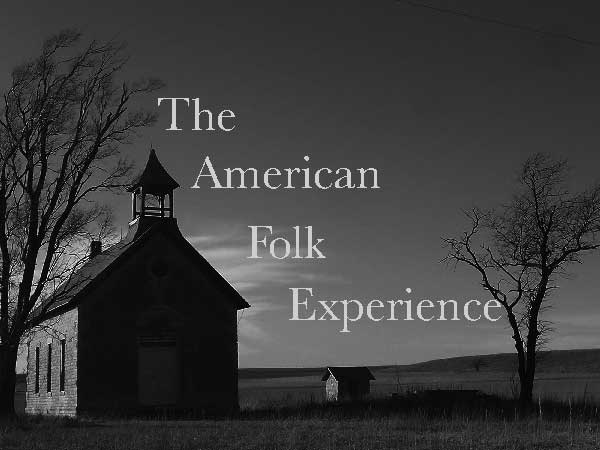
Performances, Workshops, Resources & Recordings
The American Folk Experience is dedicated to collecting and curating the most enduring songs from our musical heritage. Every performance and workshop is a celebration and exploration of the timeless songs and stories that have shaped and formed the musical history of America. John Fitzsimmons has been singing and performing these gems of the past for the past forty years, and he brings a folksy warmth, humor and massive repertoire of songs to any occasion.
Festivals & Celebrations Coffeehouses School Assemblies Library Presentations Songwriting Workshops Artist in Residence House Concerts Pub Singing Irish & Celtic Performances Poetry Readings Campfires Music Lessons Senior Centers Voiceovers & Recording
““Beneath the friendly charisma is the heart of a purist gently leading us from the songs of our lives to the timeless traditional songs he knows so well…”
Join Fitz at The Colonial Inn
“The Nobel Laureate of New England Pub Music…”
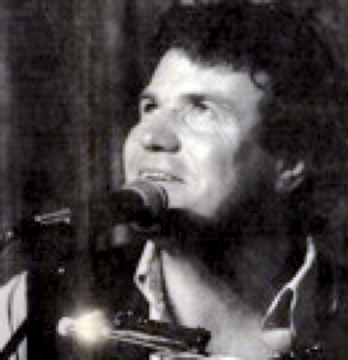
On the Green, in Concord, MA Every Thursday Night for over thirty years…
“A Song Singing, Word Slinging, Story Swapping, Ballad Mongering, Folksinger, Teacher, & Poet…”
Fitz’s Recordings
& Writings
Songs, poems, essays, reflections and ramblings of a folksinger, traveler, teacher, poet and thinker…
Download for free from the iTunes Bookstore
“A Master of Folk…”
Fitz’s now classic recording of original songs and poetry…
Download from the iTunes Music Store
“A Masterful weaver of song whose deep, resonant voice rivals the best of his genre…”
“2003: Best Children’s Music Recording of the Year…”
Fitz & The Salty Dawgs Amazing music, good times and good friends…



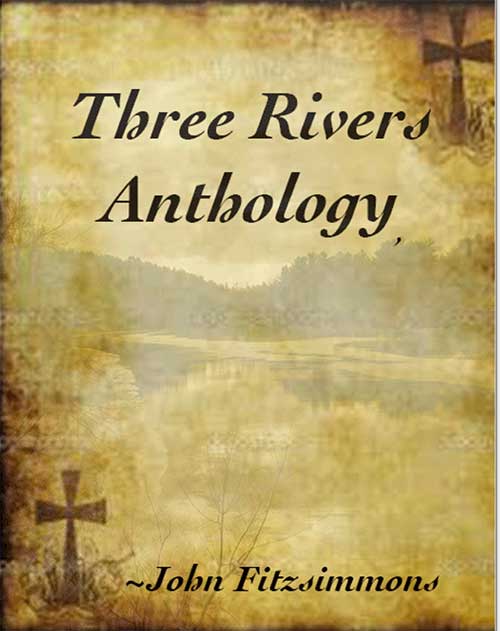
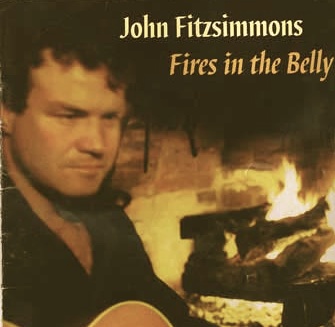
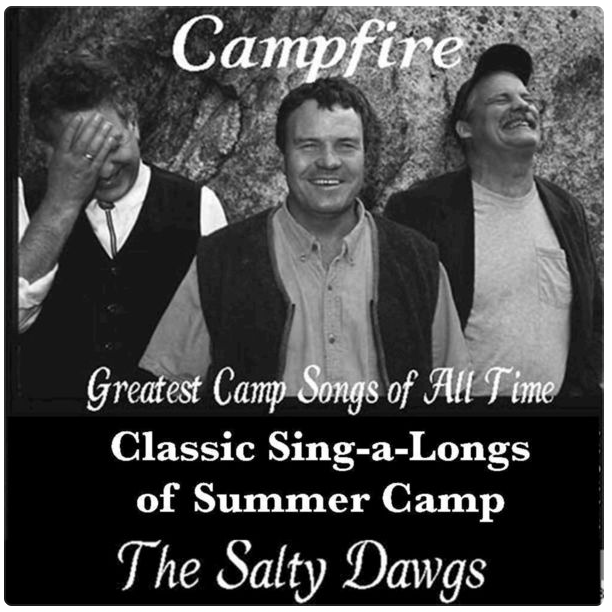
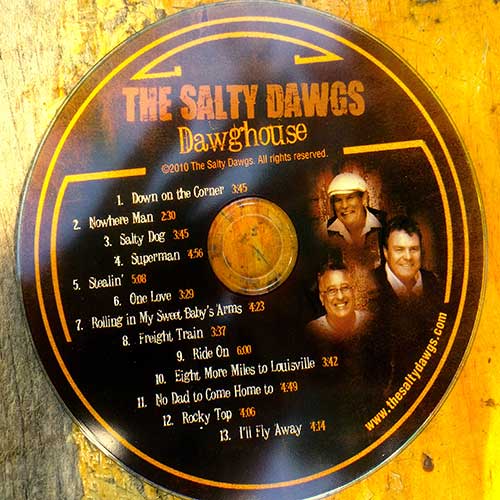
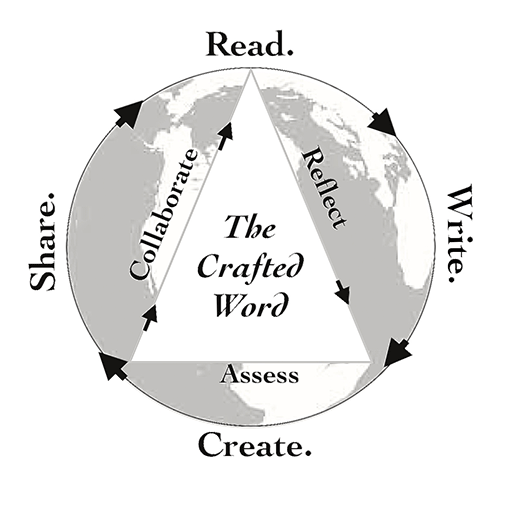

0 Comments